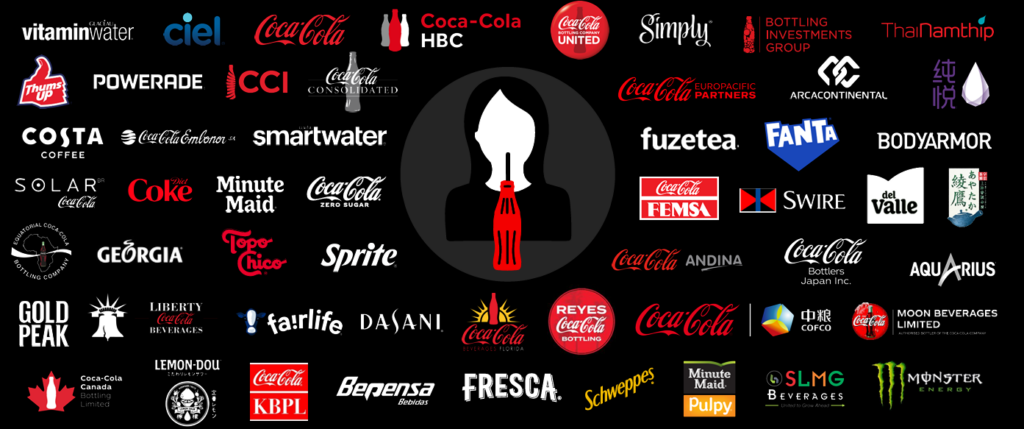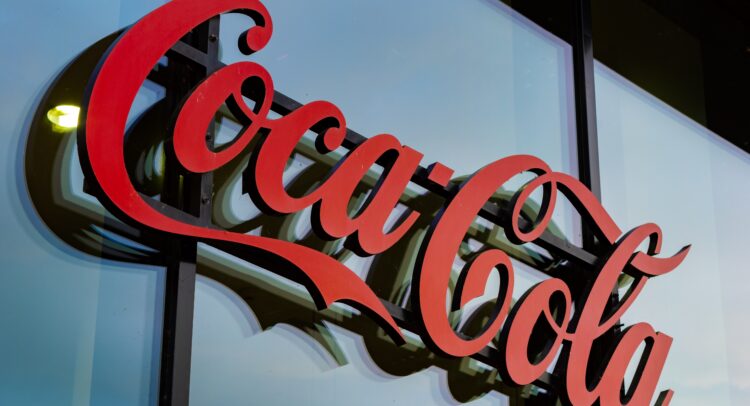There are few brands that are more globally recognized than Coca-Cola (KO). Whether at a bar in Manhattan or a shop in Bali, most customers would expect to be able to find one of the company’s products with relative ease. With over a century in production, Coca-Cola is clearly a giant in the global beverage market but has seen mixed performance over the past year. After peaking in September, KO stock is trading close to $62 per share, up around 8.5% since last year.
Elevate Your Investing Strategy:
- Take advantage of TipRanks Premium at 50% off! Unlock powerful investing tools, advanced data, and expert analyst insights to help you invest with confidence.
Despite the mixed price action, I see plenty of reasons, including increased diversification and innovation, to like KO stock regardless of what the coming decade holds for investors. Consequently, I will be presenting a largely bullish thesis on Coca-Cola stock.

Coca-Cola’s Brand Dominance
Market leaders with both reputational and competitive features are usually my preferred investments. Clearly, Coca-Cola dominates multiple sectors across carbonated drinks, juices, coffees, and teas. With a simple enough model, including a global network of bottling partners, Coca-Cola has nailed capital efficiency and scalability. Just take a look at the dozens of brands the company currently manages.

The company is generally based around the flagship product but has shown impressive agility and adaptability by moving into new markets and seeing genuine success. With the distribution network now in over 200 countries, selling two billion beverages each day, there is an incredible level of reach, even alongside regional and international competition.
The Importance of Diversification
As I bullishly noted, Coca-Cola is far more than just a single product now, given that it has moved into a range of established and dynamic categories. This continues to grow as management builds reputations in new areas, such as hard seltzers and energy drinks, with more health-conscious consumers.
There may be a relatively decent level of saturation in more developed markets, but I see emerging markets in Asia, Africa, and Latin America still offering tremendous revenue opportunities. Management is looking to develop strategies specific to these regions, with local tastes and economic conditions addressed in launch plans.
Innovation Required to Sustain Performance
Innovations such as single-serve packs and adjusting marketing to be culturally relevant can potentially build a stronger footprint in the key regions going forward.
However, there’s also plenty going on in the popular AI-driven marketing space, with predictive analytics optimizing product placements and promotions in more traditional retail environments. AI-based experiences are also being rolled out by the company, including a recent Christmas campaign, but consumer enthusiasm for such ideas is still mixed.
I’m also pleased to see management tackling sustainability in recent years, with a genuine push towards reducing carbon emissions and increased recycling. This has been a problem area for some time, but with plans to make all products from recycled material by 2030, now could be a milestone for environmentally-conscious investors.
Risks to Consider
Companies that have the brand awareness of Coca-Cola can be difficult for value investors to get excited about, but I see plenty of reasons why even a premium valuation can be justified here. A basic discounted cash flow (DCF) calculation suggests that the share price may be about 29% higher than fair value at present, with an estimate of $44.81.
However, Wall Street seems to agree that there is more to the tale, with a price target of $72.08, around 15% higher than the current level. With 14 out of 15 analysts also giving the company a Buy rating and multiple recent upgrades, I see the light at the end of the tunnel following a rocky few months, where volumes decelerated, and geopolitics hit the share price.

That said, a change in the global economy or escalation in geopolitical tensions could easily see further declines. With the share price potentially trading above fair value due to the market giving management credit for the level of market dominance, any negativity impacting supply chains could see oversized volatility. Alongside this, the factors that caused the recent slump could easily continue, with inflationary pressures on key ingredients such as sugar and an increased likelihood of recessions in key markets.
A new risk that I feel is discussed but not entirely priced in is the increased use of weight-loss medication, which has been shown to reduce cravings for sugary snacks and drinks. With these increasingly popular, wider adoption could easily see a sudden reduction in demand in some of the company’s largest markets. This ties in with the possibility of additional regulation on sugary drinks, all of which play into the fears of existing and potential new investors.
Taking on the Competition
As much as Coca-Cola is clearly the market leader, there is some decent competition out there to consider. I don’t think any of these will push for the top spot any time soon, but they represent alternative structures that could lead to additional opportunities in which Coca-Cola is not present.
Let’s take PepsiCo (PEP) as an example. With a vertically integrated model, PepsiCo management can pivot to the snacks market with relative ease, potentially hedging against any declines in beverage consumption. While both models are perfectly valid, and with Coca-Cola’s asset-light, widespread bottling network currently proving superior in terms of revenue growth, I’d be comfortable with owning either in my portfolio.
Both seem to have fairly reasonable valuations and similar levels of upside potential from analysts, but with Coca-Cola historically able to excel regardless of market conditions and the state of the economy, I’d be sticking with the giant of the beverage world.

Strong Fundamentals Keep the Fizz in Coca-Cola
Coca-Cola is one of the most stable companies in the world, with an almost unmatched level of adoption and brand recognition. I understand some concerns about the valuation and certain risks. However, with such a strong track record, I see management as being perfectly capable of withstanding any turbulence in the near term. Ultimately, I consider the company one of the titans of the market. With products unlikely to go out of fashion any time soon and with some great ideas for growth, I’m bullish on KO as a sound, medium-term investment.
















